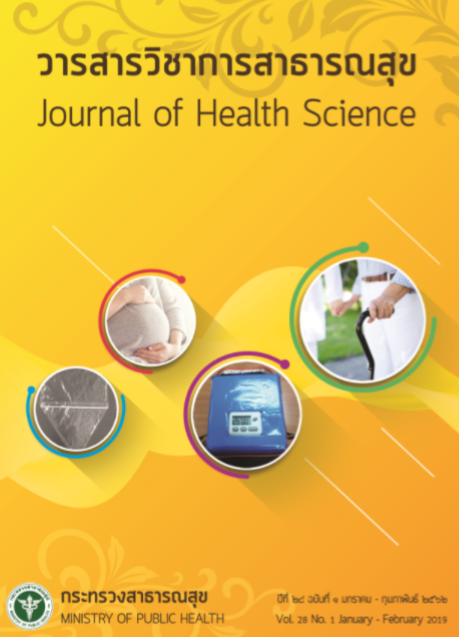Knowledge and Attitude Affecting Accessibility to the Universal Health Coverage Service of Taxi Driver in Bangkok Area
Keywords:
accessibility, taxi driver, universal health coverage serviceAbstract
The main objective of this research was to study the factors influencing accessibility to the universal coverage service of taxi drivers in Bangkok area. The samples were 400 taxi drivers selected by the purposive sampling only those under the universal health coverage scheme. Data were collected by using questionnaire; and were analyzed by stepwise multiple regression. Statistical significance level was set at 0.05. The study found that accessibility to the universal health coverage services of taxi drivers in Bangkok area was associated with five issues including the acceptability, availability, accommodation, accessibility and affordability. The average score was 3.37, 3.16, 3.56, 3.49, and 3.41 respectively. Testing for all independent variables predicted the variable of access to universal coverage services in each aspect and included the following: for acceptability, there were 4 independent variables could predict 29.9% which consisted of attitudes toward the universal health coverage, attitudes towards benefits, age, and average taxi driver income. For availability, there were 4 variables that could predict 14.6% which were attitudes towards the universal health coverage, knowledge about the universal health coverage, domicile and attitudes towards criterion. For accommodation there were 3 variables that could predict 17.0%: attitudes toward the universal health coverage, attitude toward the access right, and age. For accessibility, there were 3 variables that could predict 9.1% including domicile, attitudes toward criterion and age. For affordability there were 2 variables that could predict 14.8%: attitudes towards the universal health coverage and knowledge about access rights. Overall accessibility for universal health coverage, there were 5 independent variables that could predict 31.3% which consisted of attitudes toward the universal health coverage, age, domicile, attitudes towards criterion and knowledge about criterion. It could be concluded that the main influencing factor was the attitude toward the universal health coverage, which consisted of attitudes in the overall, criterion, benefits and access rights; w=as well as knowledge about the universal health coverage, which consisted of knowledge in the overall, access rights and criterion.
Downloads
Downloads
Published
How to Cite
Issue
Section
License
Copyright (c) 2019 Journal of Health Science- วารสารวิชาการสาธารณสุข

This work is licensed under a Creative Commons Attribution-NonCommercial-NoDerivatives 4.0 International License.







